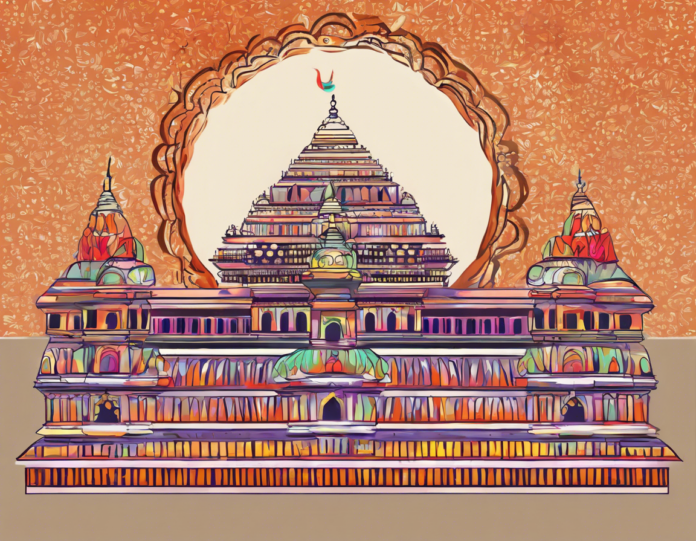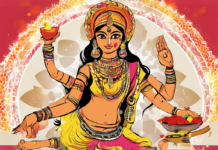On the 29th of March, 1924, in a small village in India, a girl was born who would go on to leave an indelible mark on the cultural landscape of the country. She was named Vasundhara Devi, and little did anyone know then that she would grow up to become a revered figure, a symbol of strength and resilience, and a beacon of hope for countless individuals across the nation.
Early Life and Influences
Vasundhara Devi was raised in a traditional Indian household, where values like perseverance, humility, and respect for one’s roots were instilled in her from a young age. She was deeply influenced by her parents, who themselves were stalwarts in their community, known for their philanthropic work and commitment to social causes.
From her mother, Vasundhara Devi imbibed the importance of compassion and empathy, traits that would define her interactions with others throughout her life. Her father, a man of great wisdom and integrity, taught her the value of education and the power of knowledge in shaping one’s destiny.
Journey to Prominence
As she grew older, Vasundhara Devi’s passion for dance became apparent to all who knew her. She displayed a natural talent for the art form, which she honed through years of dedicated practice and training. Her performances soon garnered attention and acclaim, drawing audiences from far and wide to witness her mesmerizing expressions and flawless movements.
It was not just her skill as a dancer that captured people’s hearts, but also her unwavering commitment to using her art for a greater purpose. Vasundhara Devi became known for choreographing performances that told stories of resilience, of triumph over adversity, and of the enduring spirit of the human soul.
Cultural Impact
Vasundhara Devi’s influence extended beyond the realm of dance. She was a vocal advocate for women’s rights, using her platform to raise awareness about issues such as gender equality, education for girls, and the eradication of social stigmas. Her words inspired countless young women to dream big, to challenge societal norms, and to carve out their own paths in life.
Through her tireless efforts, Vasundhara Devi became a symbol of empowerment for women everywhere, showing them that they could be both strong and graceful, both fierce and compassionate. Her legacy continues to inspire generations of artists, activists, and change-makers to this day.
Lessons in Resilience
One of the most enduring lessons that Vasundhara Devi imparted to those who knew her was the importance of resilience in the face of adversity. She herself had faced numerous hardships in her life – personal, professional, and societal – but she never allowed them to dampen her spirit or dim her light.
Vasundhara Devi’s resilience was born out of a deep sense of purpose, a belief that her art had the power to heal, to transform, and to unite. She faced each challenge with grace and determination, emerging stronger and more focused each time.
Legacy and Rememberance
As we look back on the life of Smt. Vasundhara Devi, we are reminded of the enduring power of art, of compassion, and of strength in the face of adversity. Her legacy lives on in the hearts of all those who were touched by her presence, her words, and her dance.
In a world that is often marked by chaos and uncertainty, Vasundhara Devi stands as a beacon of hope, a reminder that no matter how dark the night may seem, the dawn will always break, bringing with it a new day filled with possibilities.
Let us remember her not just for her artistry or her activism, but for the indomitable spirit that defined her life, a spirit that continues to inspire and uplift us all.
Frequently Asked Questions (FAQs)
Q: What was Vasundhara Devi’s most famous dance performance?
A: Vasundhara Devi’s most famous dance performance was her rendition of the classical Indian dance form, Bharatanatyam, depicting the story of Draupadi’s vastraharan (disrobing) from the epic Mahabharata.
Q: How did Vasundhara Devi contribute to the feminist movement in India?
A: Vasundhara Devi was a vocal advocate for women’s rights, using her platform to raise awareness about issues such as gender equality, education for girls, and the eradication of social stigmas.
Q: What are some of the values Vasundhara Devi was known for?
A: Vasundhara Devi was known for her values of compassion, empathy, resilience, and commitment to social causes.
Q: Did Vasundhara Devi receive any awards or honors during her lifetime?
A: Yes, Vasundhara Devi received several awards and honors for her contributions to the arts and social causes, including the National Award for Best Choreography.
Q: How can we continue to honor Vasundhara Devi’s legacy today?
A: We can honor Vasundhara Devi’s legacy by promoting the values she stood for – compassion, resilience, and empowerment – and by continuing to support causes that were dear to her heart, such as women’s rights and education for all.







